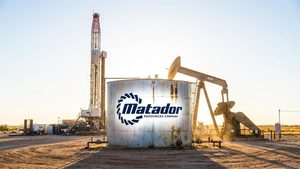Amid the ongoing governance dispute over Korea Zinc (KRX:010130), there is growing public interests around the track records of the involved parties, particularly MBK Partners. MBK’s past investment activities in Korea have come under scrutiny, raising questions about the potential impact on Korea Zinc’s future.
Korea Zinc, the world’s largest non-ferrous metal producer, stands at a transformative juncture, with significant opportunities and a forward-looking vision for sustainable growth. With the proven track record of supplying 10% of the world’s zinc and 65% of the high-purity sulfuric acid essential for semiconductor manufacturing, the company’s innovations and strategic roadmap have positioned its role as a key player in global supply chains, driving industry advancements.
MBK’s history, however, paints a contrasting picture. According to local media report, the firm’s acquisition of Homeplus in 2015 for KRW 7.2 trillion, the largest M&A deal in Korea at the time, has faced ongoing losses and declining valuation. Despite aggressive restructuring efforts, Homeplus recorded a KRW 199.4 billion operating loss last year and remains unsold nine years later. Analysts have attributed this to MBK’s inability to adapt to shifts in retail trends, including the rise of e-commerce.
MBK’s 2013 acquisition of NEPA for KRW 9.97 trillion has also failed to yield results. NEPA’s revenue fell by 33% between 2013 and 2023, reflecting weakened brand competitiveness, inefficient management, and an inadequate response to market challenges. MBK’s acquisition of D’Live in 2008 for over KRW 2 trillion also proved ill-timed, coinciding with the rise of IPTV services that triggered the cable TV industry’s decline. These cases reflect a pattern of poor market judgment and an overemphasis on short-term returns.
MBK’s aggressive acquisition attempts have often faced significant resistance. Its public tender offer for Hankook & Company last year fell short of its target, securing only 8.83% of shares due to opposition from existing management and shareholders. Similarly, MBK’s attempt to acquire Kakao Mobility in 2022 was derailed by fierce backlash from employees and labor unions, forcing the firm to abandon negotiations.
Post-acquisition conflicts have further underscored MBK’s contentious legacy. Large-scale layoffs at Homeplus reduced its workforce from 25,000 in 2015 to 19,000 by 2023. At D’Live, labor protests erupted over mass layoffs, while unilateral contract terminations at BHC prompted regulatory fines and corrective orders from the Fair Trade Commission. These practices have sparked public criticism and eroded trust in MBK’s ability to manage companies responsibly.
Concerns surrounding MBK’s potential control of Korea Zinc are especially pronounced given the company’s critical role in global supply chains. Korea Zinc’s forward-looking agenda includes groundbreaking innovations in advanced materials and sustainability, reflecting its commitment to driving growth and fostering international partnerships. However, MBK’s track record of prioritizing short-term profits raises questions about its capacity to uphold Korea Zinc’s strategic vision.
Industry experts have also flagged risks of core technology leakage, particularly to foreign entities such as China, should MBK gain control of Korea Zinc. As a non-Chinese capital partner in the non-ferrous metals sector, Korea Zinc has been pivotal in diversifying global supply chains and supporting collaborative efforts with key countries. Both local and global experts have raised concerns that the loss of this leadership could have far-reaching consequences for the industry.
As shareholders prepare to cast their votes, industry analysts stress the importance of evaluating governance capabilities and long-term vision. "Korea Zinc’s unparalleled potential and its critical role in global supply chains make this decision pivotal for the company’s future," remarked an expert. "Stakeholders must carefully consider whether MBK’s track record aligns with Korea Zinc’s ambitious growth agenda and innovation roadmap."
The outcome of the shareholders’ meeting will not only shape Korea Zinc’s governance but could also have profound implications for the stability of global supply chains and the future of critical industries worldwide.
View source version on businesswire.com: https://www.businesswire.com/news/home/20241119445222/en/
Contacts
FleishmanHillard
Aesop Kim
+82-10-3200-0493
aesop.kim@fleishman.com




